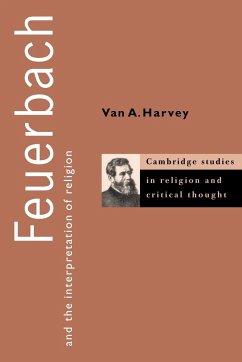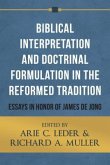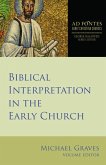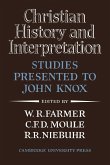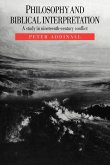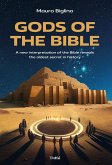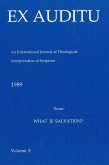Ludwig Feuerbach is traditionally regarded as a significant but transitional figure in the development of nineteenth-century German thought. Readings of Feuerbach's The Essence of Christianity tend to focus on those features which made it seem liberating to the Young Hegelians: namely, its criticism of reification as abstraction, and its interpretation of religion as alienation. In this long-awaited book, the first of an important new series, Van Harvey claims that this is a limited and inadequate view of Feuerbach's work, especially of his critique of religion. The author argues that Feuerbach's philosophical development led him to a much more complex and interesting theory of religion which he expounded in works which have been virtually ignored hitherto. By exploring these works, Harvey gives them a significant contemporary re-statement, and brings Feuerbach into conversation with a number of modern theorists of religion.
Table of contents:
Acknowledgements; Note on the text and abbreviations; Introduction; 1. 'Projection' in The Essence of Christianity; 2. The interpretative strategy informing The Essence of Christianity; 3. The criticism of religion in The Essence of Christianity; 4. Feuerbach's intellectual development; 5. The new bipolar model of religion; 6. The new interpretative strategy and Feuerbach and contemporary projection theories; 7. Feuerbach, anthropomorphism, and the need for religious illusion; Select Bibliography; Index.
Most scholars regard Feuerbach's criticism of Christianity as important because of its anticipation of the views of Nietzsche, Marx and Freud. Van Harvey's long-awaited book argues, controversially, that Feuerbach developed a much more interesting and nuanced theory of religion than has been acknowledged hitherto.
A significant revisionist account of Feuerbach's theory of religion, by a senior American scholar.
Hinweis: Dieser Artikel kann nur an eine deutsche Lieferadresse ausgeliefert werden.
Table of contents:
Acknowledgements; Note on the text and abbreviations; Introduction; 1. 'Projection' in The Essence of Christianity; 2. The interpretative strategy informing The Essence of Christianity; 3. The criticism of religion in The Essence of Christianity; 4. Feuerbach's intellectual development; 5. The new bipolar model of religion; 6. The new interpretative strategy and Feuerbach and contemporary projection theories; 7. Feuerbach, anthropomorphism, and the need for religious illusion; Select Bibliography; Index.
Most scholars regard Feuerbach's criticism of Christianity as important because of its anticipation of the views of Nietzsche, Marx and Freud. Van Harvey's long-awaited book argues, controversially, that Feuerbach developed a much more interesting and nuanced theory of religion than has been acknowledged hitherto.
A significant revisionist account of Feuerbach's theory of religion, by a senior American scholar.
Hinweis: Dieser Artikel kann nur an eine deutsche Lieferadresse ausgeliefert werden.

